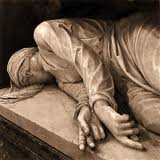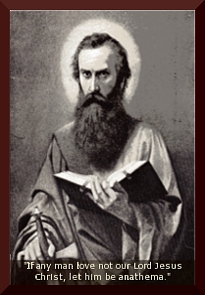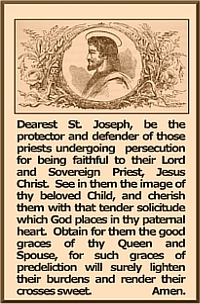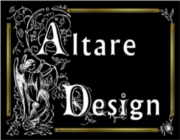The post-conciliar quest for a unity which the Church already possesses is nothing more than a glaring aberration from past doctrinal teaching. Let me show you.
The Manual of the Holy Catholic Church which I have thus far referenced, bears the imprimatur of Archbishop James Edward Quigley as well as endorsements, acknowledgements and affirmations of 27 other prelates, a sample of which is shown below.
The underlined portion of this commendation reads:  “the usefulness of which is unquestionable, a clear and inexhaustible spring out of which may drink both flock and pastor.”
“the usefulness of which is unquestionable, a clear and inexhaustible spring out of which may drink both flock and pastor.”
There are more such approbations, but I think one sample will suffice.
As stated in the preface, the manual was written with the express purpose of carrying out the instructions of (St.) Pius X to counter the great evil of the times, i.e., the faithful’s ignorance of those truths necessary for salvation. (ha! What would he say now?)
Under the heading, “Out of The Church of Christ There is No Salvation” on page 152, a question and answer is written thus:
Q. Is it lawful to have any communication in things of religion with those who are separated from the Church of Christ?
A. By no means; all communion or fellowship in any religious duties, rites or ritual is repeatedly and strictly forbidden by the Church.
One also finds other teachings here such as:
“only in her communion…the true faith of Christ can be found, ‘without which it is impossible to please God, ‘ Heb. xi 6.”
“Christ has declared, that all who refuse to hear her [the Catholic Church] are condemned by Him as heathens and publicans…”
“Christ, speaking of those who were not yet joined in the communion of his Church, but whom he foreknew would make a good use of the graces he would give them for the purpose, says, ‘Other sheep I have who are not of this fold, them I MUST BRING [into the fold]’ …as a necessary condition of their salvation.”
“the Lord added daily to the Church such as should be saved,” Acts ii.47.
Now, in Jurgen’s The Faith of the Early Fathers there are 15 entries in the index under “Heretics and schismatics, in the teaching of the Fathers, are not members of the Church.” One example is from St. Irenaeus: “When, therefore, we have such proofs, it is not necessary to seek among others the truth which is easily obtained from the Church. For the Apostles, like a rich man in a bank, deposited with her most copiously everything which pertains to the truth; and everyone whosoever wishes draws from her the drink of life. For she is the entrance to life, while all the rest are thieves and robbers. That is why it is surely necessary to avoid them, while cherishing with the utmost diligence the things pertaining to the Church, and to lay hold of the traditions of truth.”
The liberal, ecumenist, Archbishop Forte who turned over a Catholic church to the schismatic Orthodox, says, “However, there is an inalienable point on which the community founded by Archbishop Lefebvre will have to measure itself: the full and convinced acceptance of Vatican II in its doctrinal contents.” Obviously he is ignorant of the fact that the SSPX fully accepts all of the re-stated doctrinal contents of VII. Regarding “ecumenism” though, we see that the voice from the grave of St. Irenaeus defends the position of the SSPX.
The ecumenism of VII with its novel conception of searching for “heretofore unrealized unity”*, the late Abbe de Nantes called “Congarian ecumenism” for it was Fr. Congar who advocated it, publishing a book in 1937 to that effect. The book Disunited Christians was condemned by the Holy Office. Tertullian says that “anything is indeed rashly believed if it is believed without an examination of its origin.” Those are words of wisdom we should take to heart.
* From the opening speech of VII, October 11, 1962: “The family of Christians has unfortunately not yet attained visible unity fully and completely.”




